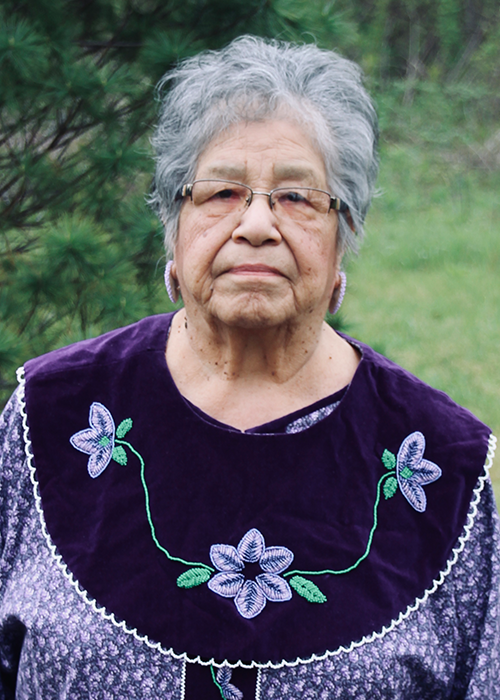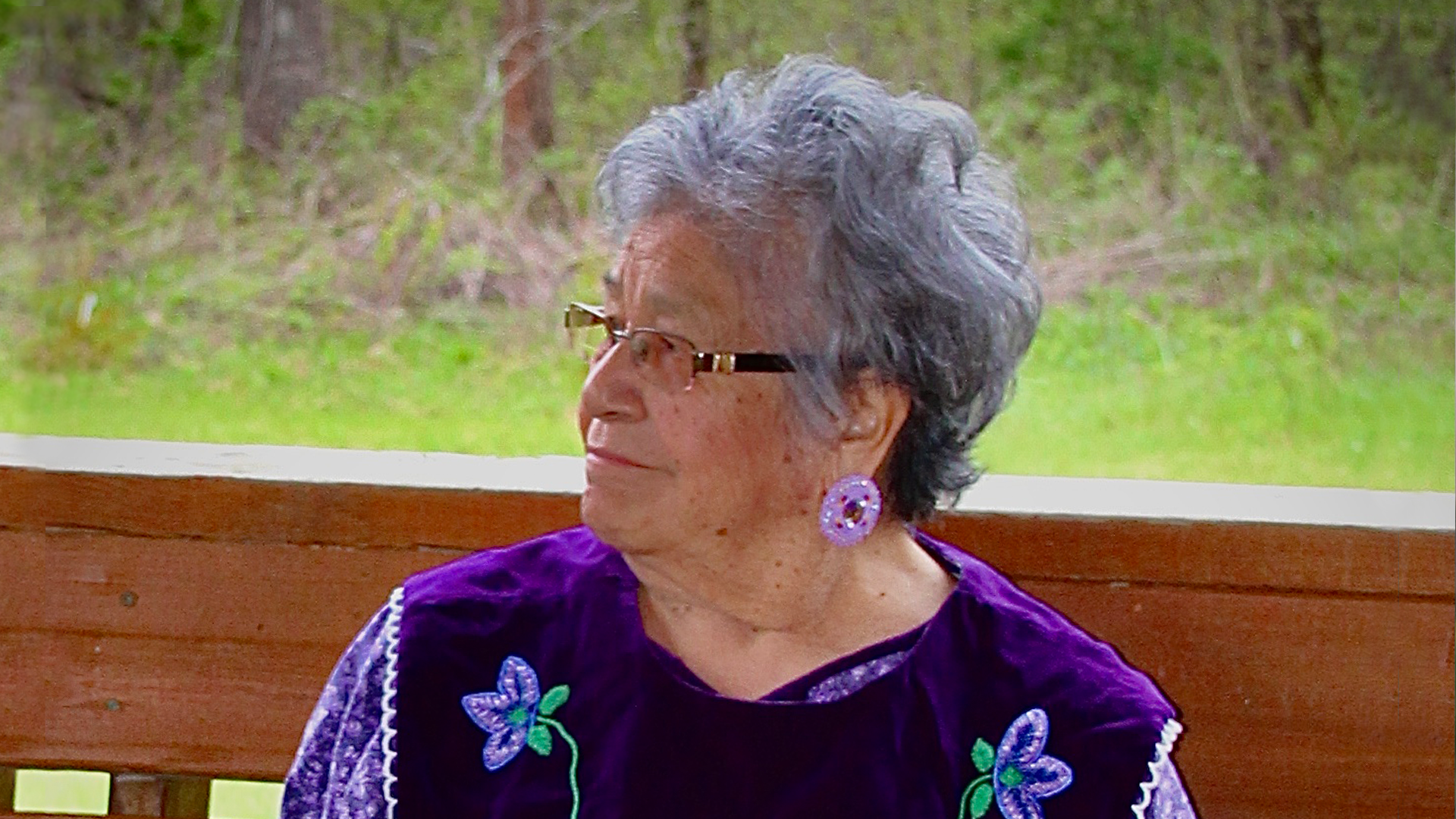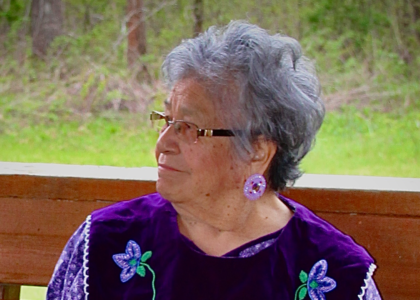Name
Watahíne
Tribal Nation
Oneida Nation of the Thames
Devotion

Watahíne, Olive Elm, is Bear Clan from the Oneida Nation of the Thames. At eighty years of age, Olive has clear memories of sitting with her mother in the longhouse and with her grandmother in church. In these times, she listened to her elders and she learned. What was most important to learn and know could not be found anywhere but in the voice of those elders. Today Olive is one of the elders, and one of thirty-eight fluent speakers left in her nation. Olive honored her mother’s guidance to know her culture.
Olive has been an activist in her community. She served on the band council for twelve years and worked for the band for thirty years in the language center. She was teaching language when the center was simply a committee of four people—Olive and her late husband and Olive’s mentor the late, Mercy Doxtator and Mercy’s late husband. There was no building and little funding.
After Olive got elected to the band council, she rode to her first meeting with the elected chief. He asked her what she would like to see happen during her two-year term. She said, “A new language center.” The chief put it on the table at the meeting and the council passed a resolution to build a language center. Seven years later, the building was complete.
While they had a building, funding was not consistent. There was one year with no funding and Olive and Mercy continued to teach three nights a week. During lean years Olive and Mercy did their own fundraising to keep the building going and pay for heat and water. Olive’s devotion to her language spanned thirty years at the center.
Olive is given her knowledge in the community. She helped a past chief learn to open the meetings in the language. She taught a traditional healer the language for the medicines she gathered and used. She translated prayers and hymns for the Oneida Choir to learn about their language. She collaborated with teachers to develop language materials and she has translated and transcribed old tapes of cultural stories, and ceremonial speeches, Today. Olive is still teaching the language with individual Master Apprentices.
When Olive started teaching the language there were two-hundred and forty-six speakers. As one of the last thirty-eight, Olive believes she is leaving something behind for young people. And she is encouraged by these young people. She believes they are interested in learning the language she has devoted her life to saving.




